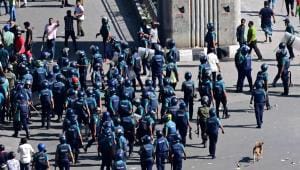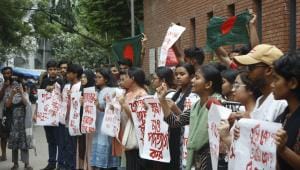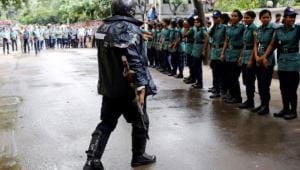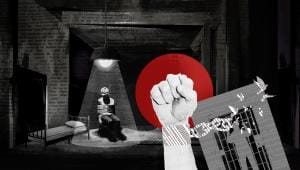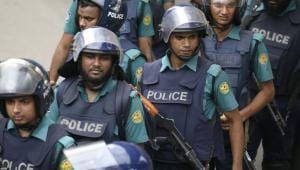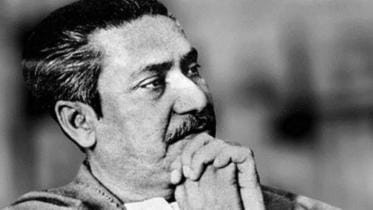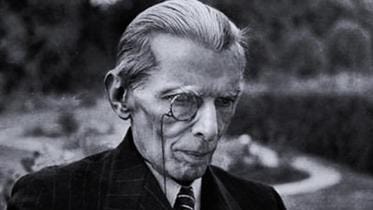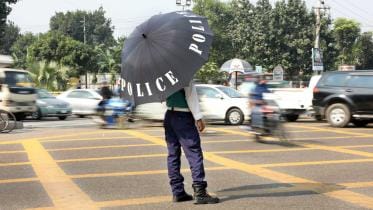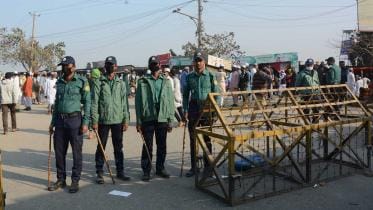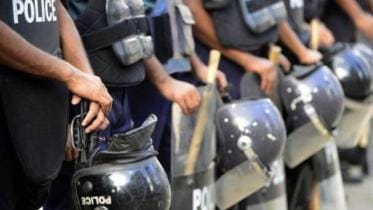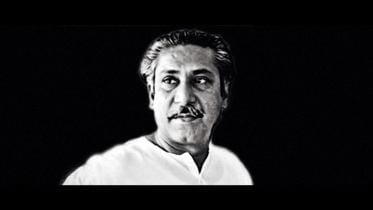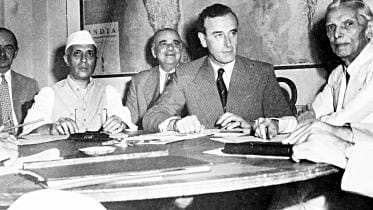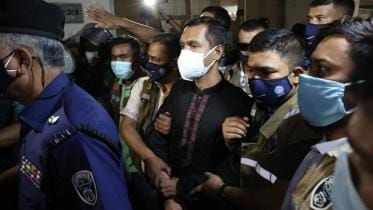Remembering the Patriarch
Bangabandhu, through an intense process of national consciousness-building, equipped a people to defend their sovereignty.
16 March 2023, 18:00 PM
Behind the pre-eminence of bureaucrats
The question is one of making the bureaucracy more responsible and responsive.
11 March 2023, 14:00 PM
Mechanisms to hold the police accountable do exist; why aren't we using them?
It is imperative to bring the police under a system of accountability that earns public confidence.
19 October 2022, 16:00 PM
Was Jinnah the real villain in the story of partition?
On June 3, 1947, Lord Mountbatten, the last viceroy of India, announced his plan for the partition of the subcontinent—in particular that of Punjab and Bengal.
3 June 2022, 18:00 PM
Getting out of the extrajudicial mode
Of late, media reports that indicate that the infamous phenomenon of extrajudicial killings has been resorted to more by the mainstream police outfit than the elite unit of the law-enforcing apparatus should bring no comfort, and indeed should be viewed with concern.
23 March 2022, 18:00 PM
What ails our local governments?
The unfortunate fact of our times is that all reports on Bangladesh’s socio-economic progression almost invariably point to the lack of good governance as a significant deficit in our developmental strides.
12 February 2022, 18:00 PM
The ‘crossfire’ controversy
The piece “No ‘crossfire’ deaths since US sanctions” published in this newspaper on January 11 will definitely engage all thinking minds, especially those entrusted with the maintenance of law and public order.
19 January 2022, 18:00 PM
Understanding the spirit of the Liberation War
In recent times, there have been many discussions, discourses and deliberations on “muktijuddher chetona,” wherein passionate and eloquent speakers have emphasised the imperative of holding aloft the spirit of our great Liberation War.
17 December 2021, 18:00 PM
The invisible struggles of constables
Historically speaking, repression was the dominant feature of colonial policing, at least between 1930 and the Partition in 1947, and one cannot be certain if the attitude of the ruling establishments in the subcontinent has significantly changed insofar as the use of police powers is concerned.
6 December 2021, 18:00 PM
It’s time to look into the well-being of the policemen
More often than not, the word “police” in our parlance gets adverse attention—and for understandable reasons.
2 November 2021, 18:00 PM
The poisonous politics of communalism
While commenting on the unfortunate and shameful incidents triggered by the alleged desecration of Islamic scriptures in Cumilla,
23 October 2021, 18:00 PM
Police recruitment must be fair and transparent
Recently, there have been news reports highlighting serious irregularities in the recruitment of constables in the district of Narayanganj.
24 September 2021, 18:00 PM
Cleaning up our police force is critical
The malfeasance and misfeasance of some errant police officials in the recent past—which brought into sharp focus their worrisome delinquency—has perhaps prompted the Inspector General of Police to initiate a process of cleaning that apparently aims to rid the police of bad apples.
13 September 2021, 18:00 PM
Remembering Professor Syed Saleheen Qadri
In the throes of struggling with the Covid-19 scourge, Bangladesh has unfortunately lost many of her illustrious sons in the not-too-distant past.
4 September 2021, 18:00 PM
The sinister carnage of August 21, 2004
In the unfortunate annals of our political history, the month of August perhaps witnessed more macabre incidents than others.
21 August 2021, 18:00 PM
74 Years Since Partition: Sectarian obstinacy and the Partition of 1947
For a significant number of people, including those who had ventured to understand the causes of the historic Partition of the Indian subcontinent in 1947,
17 August 2021, 18:00 PM
Understanding the tragedy of August 15, 1975
All Bangladeshis, particularly those born after 1971, need to know and understand why the ghastly assassination of Bangabandhu on August 15, 1971, is such a massive tragedy.
14 August 2021, 18:00 PM
What Ails Democracy?
There is a well-grounded belief that irrespective of the state of socio-economic progress, democracy as a form of government has not been able to take firm root in many societies.
16 June 2021, 18:00 PM
The Mountbatten factor in India’s partition
It can be said without any fear of contradiction that one of history’s most massive displacements of population with the attendant violence and misery took place when,
2 June 2021, 18:00 PM
The case against SP Babul Akter
The complainant is now complained against.
26 May 2021, 18:00 PM





